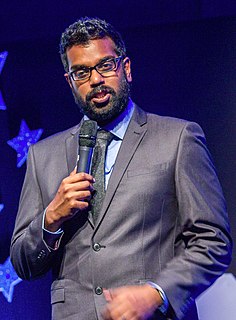A Quote by Danny Boyle
It just seduces you when you read a story and your brain relates to it. You recognize or connect with it. You identify with it; you're bound to.
Related Quotes
Two kinds of reading can be distinguished. I call them reading like a reader and reading like a writer ... when you read like a reader, you identify with the characters in the story. The story is what you learn about. When you read like a writer, you identify with the author and learn about writing.
Mindi Scott has a real talent for getting inside her protagonist's head. She sketches out Coley's story in grand swathes, and then paints in all the little details, so that you feel as though you are enmeshed in Coley's brain: thinking her thoughts, feeling her confusion, anger, and, in the end, pain. I just don't think it's possible to read this book and not identify with Coley in some way.
I think that people have to have a story. When you tell a story, most people are not good storytellers because they think it's about them. You have to make your story, whatever story it is you're telling, their story. So you have to get good at telling a story so they can identify themselves in your story.
I usually try to connect with young filmmakers over the phone so I can hear them and just pick their brain as to why they want to tell the story. And usually, I'm on board. I go, "Yeah, I'd love to help. And I just need to know why you want to do this,' and it's usually an easy process because a filmmaker usually reveals his or her heart in telling the story. And that's why I'm pretty much of a softy when it comes to helping along the young ones along the way.
Once you allow yourself to identify with the people in a story, then you might begin to see yourself in that story even if on the surface it's far removed from your situation. This is what I try to tell my students: this is one great thing that literature can do - it can make us identify with situations and people far away.
I have read that, when you are writing or working on something creative, and your attention wanders, your brain is processing and working on what you have just done. But I find it hard to believe that my brain is really taking five hours to fully process the seven minutes I have managed to spend focused on one thing.
I always wonder: the images that hit your brain when you're young are so significant, because there's not that much information in your brain. As you get older, things just bounce off. I can remember these minute details of stupid TV shows from the '70s, and I can't remember a book I read yesterday.






































